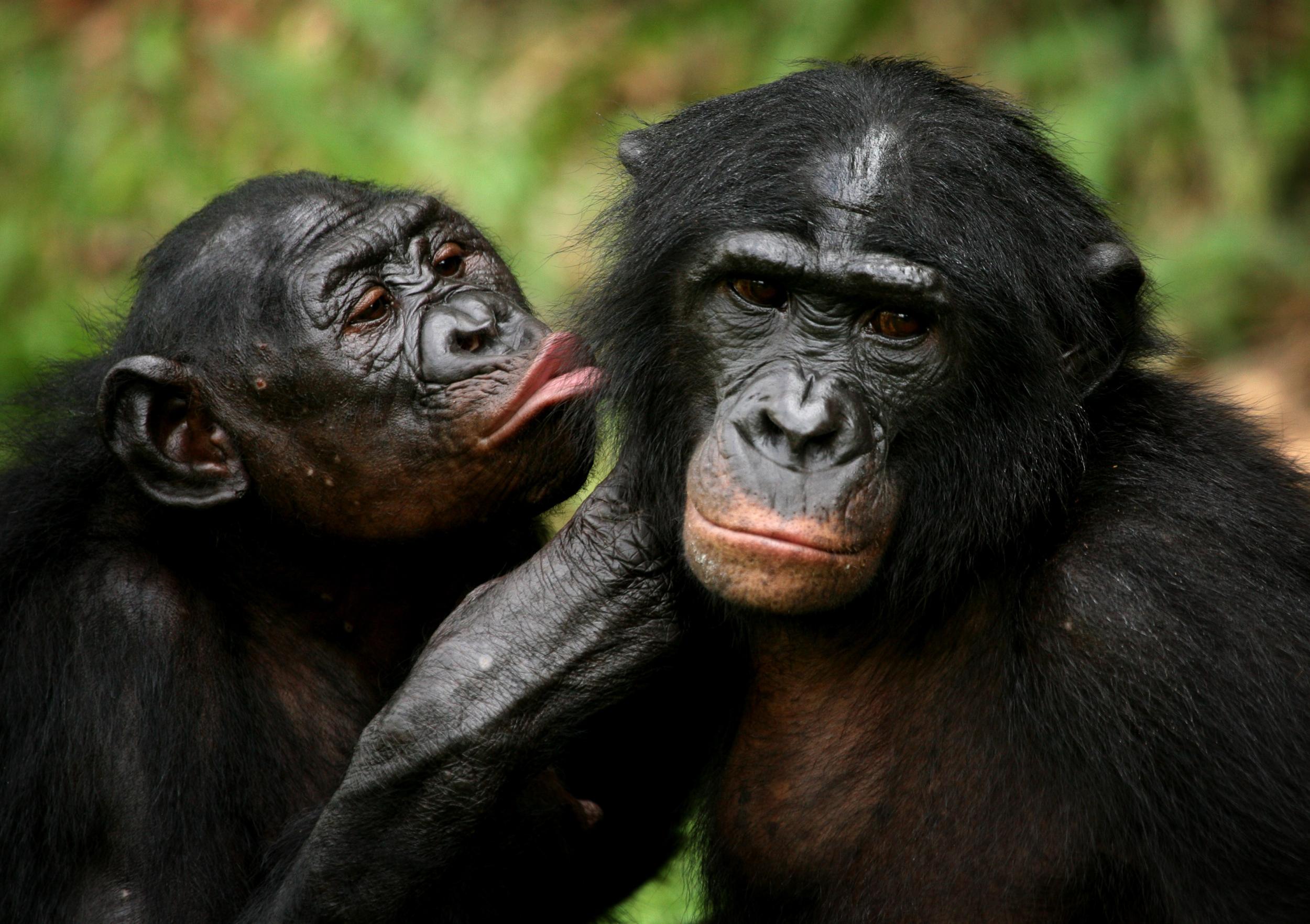The Independent's journalism is supported by our readers. When you purchase through links on our site, we may earn commission.
Mystery 'ghost species' of chimpanzee discovered in bonobo DNA
Newly discovered species lived 400,000 years ago

A new "ghost species" of chimpanzee which roamed the forests of central Africa hundreds of thousands of years ago has been detected through genetic analysis.
While there are no remains or living members of the previously unknown ape, its existence has been confirmed by scientists who found its genes being carried by living bonobos.
"Ghost species" is the name given to a type of animal discovered after its extinction through DNA analysis, and applies to this newly discovered ape which lived roughly 400,000 years ago.
The discovery was made when researchers compared the genomes of bonobos and common chimps, looking for strange DNA fragments that could not be explained by mutations or mating between the two.
In the research reported by New Scientist, Martin Kuhlwilm from the Institute of Evolutionary Biology in Barcelona found these anomalies in the bonobos, which suggested a third species that interbred with the ancestors of today's bonobos before dying out.
The ghost species' DNA wasn't found in any modern common chimps. However, Mr Kuhlwilm suggested this was because "bonobos have regions that are unusually special compared to chimps".
Species often interbreed to create new hybrids, such as when a male lion and female tiger mate to create a liger. Humans themselves even interbred with Neanderthals at some point in history, with many modern humans still carrying traces of Neanderthal DNA in their genes.
This new discovery is significant as it means there is yet another member of the great ape family with whom humans might share a common ancestor.
Unfortunately the DNA fragments discovered within the bonobo only amount to roughly 3 per cent of the extinct ape's genome, making learning specifics about the "new" species difficult.
Finding physical remains is also unlikely because of the length of time involved, with Mr Kuhlwilm rating the odds of finding an intact sample "low".
The "ghost" chimps would have died out long before Homo sapiens came on the scene around 300,000 years ago.
Changes in environment have often forced different species to interbreed.
Scientists have started witnessing grizzly bears and polar bears create offspring as climate change forces their natural environments closer to one another.
Subscribe to Independent Premium to bookmark this article
Want to bookmark your favourite articles and stories to read or reference later? Start your Independent Premium subscription today.

Join our commenting forum
Join thought-provoking conversations, follow other Independent readers and see their replies